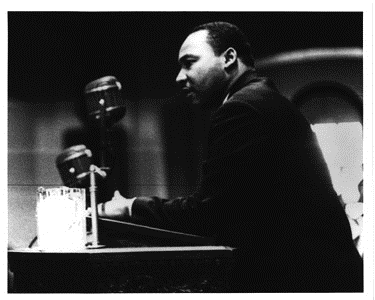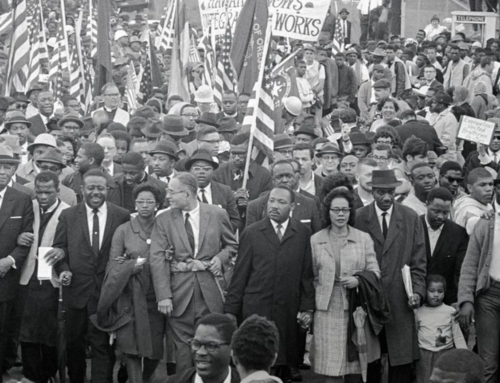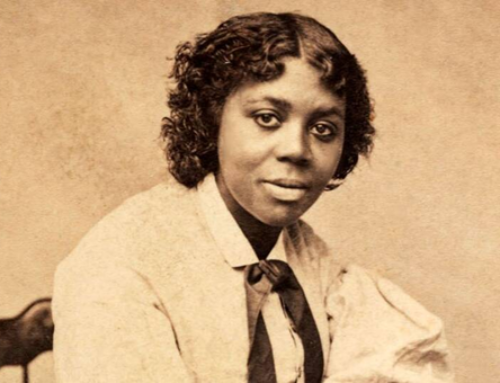Throughout Black History Month, IAC examines the relationship between power, race, and representation from various perspectives. How institutions of art and academics respond to social justice is a crucial part of the equation, in addition to grassroots efforts. In this instance, IAC explores the history and legacy of Dr. Martin Luther King Jr.’s connection to Oberlin College and the surrounding community. We are hoping that going forward we stand for racial justice and equity, from the roots of our communities to the very top.
The Reverend Dr. Martin Luther King Jr. made several visits to Oberlin during the Civil Rights Movement. King’s first official visit to Oberlin, in February of 1957, was just a couple months after he and the Montgomery Improvement Association successfully ended their 381-day bus boycott. It was during this historic boycott that King began to make a name for himself as a leader in the movement. Oberlin was fortunate to have Dr. King speak not once, but three times, during his visit. Speaking on the topics “Justice Without Violence” and “The New Negro in the South” at the First Church of Oberlin and on “The Montgomery Story” during a noon assembly at Finney Chapel, Dr. King enlightened community as to the nature of the growing Civil Rights Movement. Dr. King’s constant activism was proving to be quite a surprise to his Baptist Church congregation in Montgomery, who had appointed him in hopes that he would be less radical than their former pastor, Oberlin graduate Vernon Johns.
Dr. King was invited to speak at Oberlin in November 14, 1963. He was in good company, both Roy Wilkins of the NAACP and Malcolm X of the Black Muslims were scheduled to speak at Oberlin that November. However, King caught the flu before his visit, but came to Oberlin anyway, despite his doctor’s advice to the contrary. Upon arrival, King discovered he was indeed too sick to speak, and apologized to the attentive Finney Chapel crowd. The brevity of the two-minute speech was only highlighted by the three-minute standing ovation Dr. King was given after Oberlin’s President Robert Carr’s introduction.




